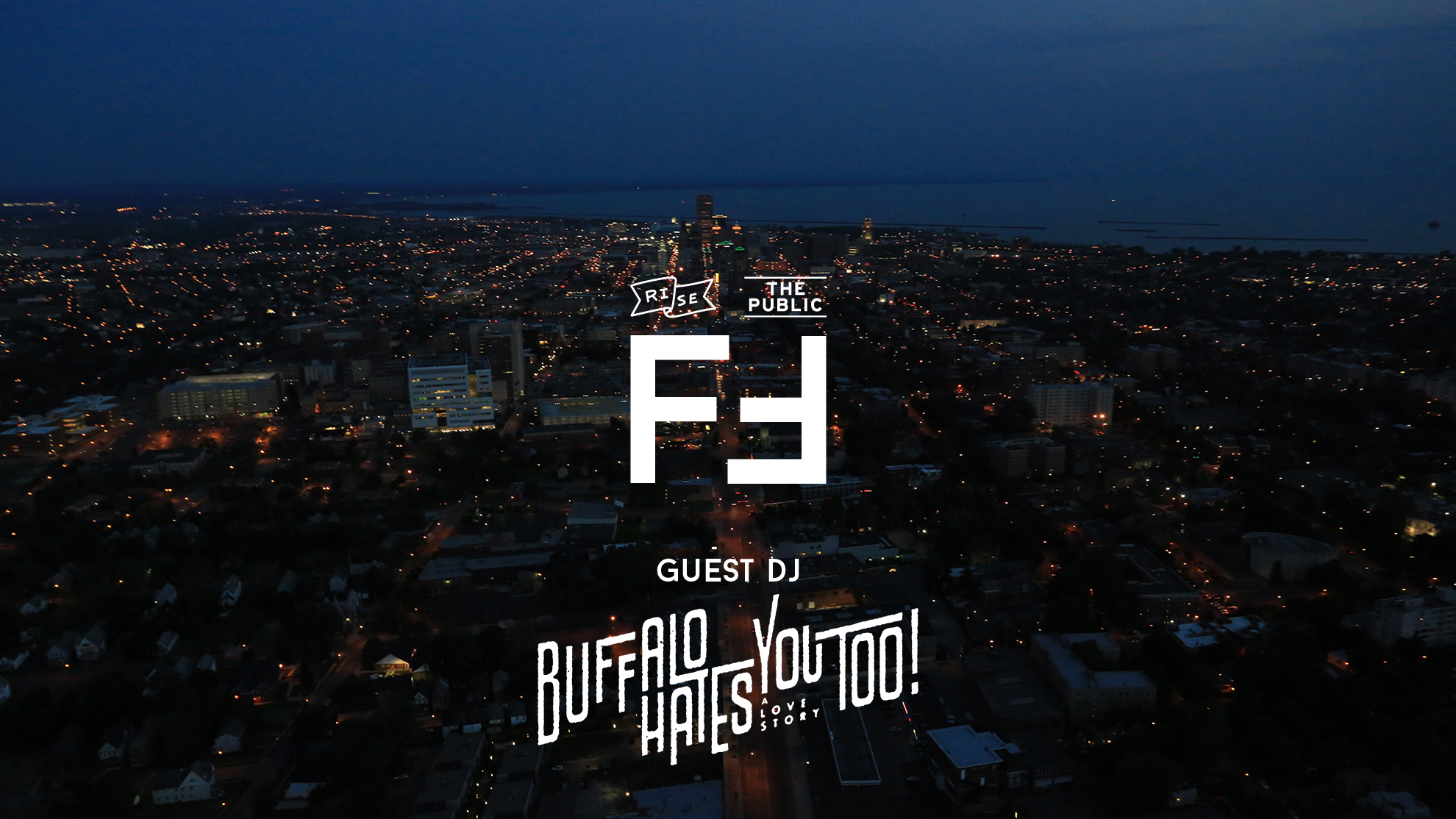By Kevin Heffernan
These are the artists that make Buffalo come alive
We first introduced you to Wooden Cities last Christmas, hyping their live music over silent film project at Hallwalls. But we were late to the game in that announcement. This rag tag group of exceedingly creative musicians has been putting on shows for years. They’ve come to realize their success deserves to live beyond live performances and have put together WORK.
Celebrate the album’s release this Friday night, back at Hallwalls.
To celebrate their debut release, WORK, Wooden Cities is pulling out all the stops to launch the album in true Wooden Cities fashion – by playing selections from their past and present, including John Zorn’s seminal work, Cobra, the first piece in the group’s expansive repertoire.
The first half features works that draw on Wooden Cities’ many forms. Gertrude Stein and Marina Blitshteyn’s poetry speaks through new arrangements from ensemble members Evan Courtin and Ethan Hayden. Matt Wellins’ Dead Room turns pressed paper and cardboard into sound and action through manipulation and destruction all while closely amplified with contact microphones. Cardew’s Red Flag Prelude, carefully orchestrated by Associate Director, Ethan Hayden, observes the human cost of mining, the title recalling a piece of bloodied clothing a Welsh miner waved as a flag during a labor protest. Kagel’s Con Voce showcases the ensemble’s penchant for theatrics – something to only be experienced live.
Add John Zorn’s explosive game piece Cobra with a who’s-who list of top Western New York players, and the night is not to be missed!
ABOUT WORK
After eight years of performing, Wooden Cities’ first release in a trilogy of upcoming albums on Infrasonic Press grapples with work, labor, commodity, and justice. The record’s three pieces have sat lost to time and have been constructed and reconstructed through careful research, including dialogues with original performs, direct accounts, and other sources. This is WORK.
Cornelius Cardew, a composer the ensemble has performed often, based his Red Flag Prelude on a poem by Jim Cornell. The poem was inspired by the death of a Welsh miner caused by government forces in the early 20th century. Cardew explains, “The bloody shirt of the victim was waved as a flag by the angry activist miners. In 1926 (the year of the general strike in England), this poem, sung to the tune of the Christmas carol ‘O Tannenbaum’, had become the song of the English working class in its struggle against capitalism. In this prelude, the emphasis is on the commemoration of the martyrs of the working class.”
Frederic Rzewski’s 1980 composition, The Price of Oil. The composer—a Creative Associate at the University at Buffalo in the early 1970s—states that his initial impetus for writing the piece was a contemporary disaster in which an oil drilling platform in the North Sea capsized during a storm, leading to the deaths of 139 people. A quasi-theatrical work following the model of the Greek chorus, The Price of Oil features two speaking characters (the “dealer” and the “worker”) who, the composer explains, “never meet or interact directly, but make up complimentary parts of a superstructure which governs their individual behavior and whose functioning in turn depends upon their active presence. Both of these characters are caught in a tragic design over which they have no control, manifesting itself on the one side as greed and the other as need.” Musically, the piece is based around “hocketing”—a technique in which a single musical line is distributed between (in this performance, 12), alternating instruments. For this piece, Wooden Cities’ director Brendan Fitzgerald has assembled a special set of percussion instruments made from metal pipes and other implements, emphasizing and sonifying the materials of the piece’s narrative.
Julius Eastman’s Stay On It, has been cited by Kyle Gann as one of the first minimalist works to show the influence of pop music. Performed extensively by Eastman with the UB Creative Associates across Europe in the 1970s, the piece was never fully scored and was, for a period, lost. Relying on a transcription by composer/performer Paul Pinto, multiple source recordings of Eastman’s performances, and conversations with Creative Associate/percussionist Jan Williams, Wooden Cities has created a reconstruction of the work which emphasizes the elements of improvisation and ensemble interaction which were integral to the original composition. While cellist David Gibson once stated that Stay On It “doesn’t exist without Julius,” Wooden Cities is doing their best to contribute to the revival of the spirit of the work. Stay On It is centered around a skeletal schematic of musical gestures which grants the ensemble significant freedom—freedom for individual players to improvise material, and freedom for ensemble members to choose when and how the piece will move forward. Matthew Mendez describes the work as embodying disco’s “fusion of Latin rhythms, Anglo-Caribbean instrumentation, North American black ‘soul’ vocals, and Euro-American melodies.” As a fundamentally multi-cultural, participatory, and democratic piece, Stay On It potentially offers a glimpse at an alternative to the structures critiqued in The Price of Oil, possibly demonstrating what ‘the price of’ a more egalitarian society might be. As Eastman notes in the piece’s original program notes: “without the movin and the groovin / the carin and the sharin / the reelin and the feelin / I mean really.”
Ensemble Biography: Wooden Cities is both a collective of performers and composers seeking to help increase the performance and awareness of contemporary music in the Western New York area through unique concerts and educational presentations. Formed in July 2011, the group initially served as a vehicle for director Brendan Fitzgerald to present John Zorn’s game piece Cobra. Since that time, the group has grown to include nearly a dozen performers and is constantly seeking new works by new composers while continuing to present works by some of the essential, yet underrepresented composers of the 20th and 21st centuries.
Wooden Cities has spent the last eight years committing themselves to presenting exciting new music from a wide spectrum of sources. The ensemble has premiered over twenty works by composers from around the world, including Girilal Baars, Ryan Ross Smith, Jeffrey Stadelman, Matt Wellins, and its own members. As a collective of composers and arrangers, Wooden Cities has created an extensive repertoire of new concert music, re-interpretations of existing works, scores for silent films, and popular music arrangements, while also frequently engaging in free improvisation and game pieces. With funding from the Muriel Wolf and Albert Steger Endowment, Wooden Cities has also reconstructed several works from Buffalo’s rich history or contemporary music, presenting works—such as Lejaren Hiller’s Avalanche (1968)—which had not seen a performance for many years.
Through its focus on education, Wooden Cities has presented workshops on new music, improvisation, and electronic music at Butler University, the University at Buffalo, the Albright-Knox Art Gallery, Starlight Studio and Art Gallery, Greece Olympia High School, the Lydia T. Wright School of Excellence, and the UB Speech-Language and Hearing Clinic, and has been hosted for residencies at Buffalo State College and the Youth Orchestra of Bucks County.




